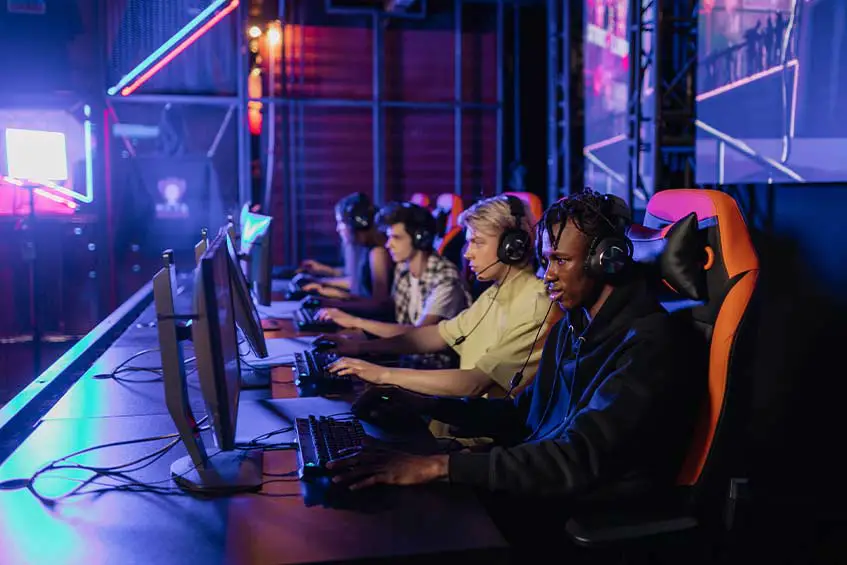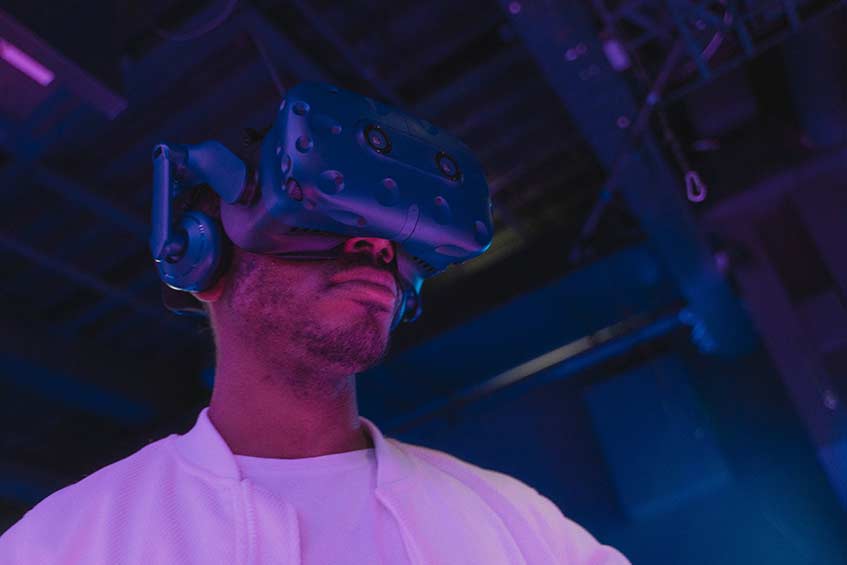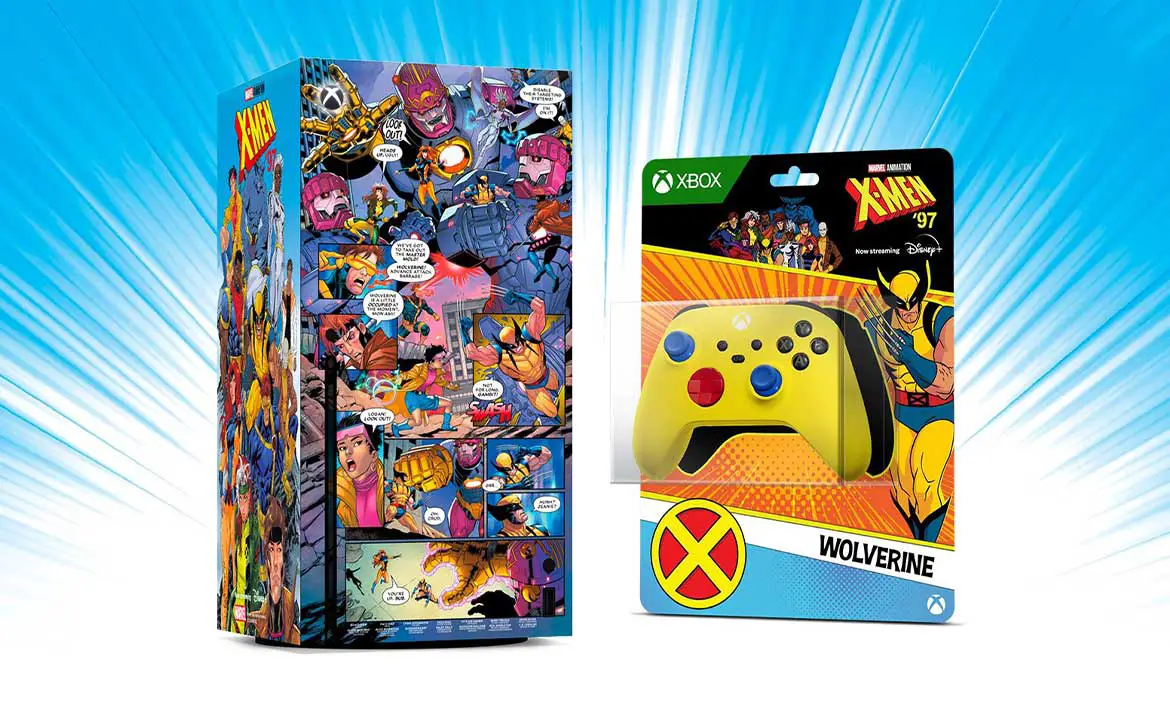In the multifaceted realm of the gaming industry, which has expanded into a formidable multibillion-dollar market, a robust and intelligent contact center structure stands paramount. With an imperative to retain player loyalty and streamline the gaming experience, let’s dive deeper into how technology acts as a linchpin in the evolution of contact centers, ensuring they remain in tandem with innovative advancements and
shifting gamer expectations.
Estimated reading time: 7 minutes
Significance of agile contact centers in modern gaming
In the dynamic digital gaming universe, where users anticipate instant, real-time interactions, the pivotal role of an agile contact center cannot be understated. These centers, blending artificial intelligence, machine learning, and expert human intervention, not only navigate and resolve immediate technical and support issues but also preemptively identify and mitigate potential challenges before they reach the gamer. This hybrid support model not only maintains but also elevates the gaming ecosystem, ensuring seamless, uninterrupted user experiences.
Predictive analytics and proactive support
With the aid of predictive analytics, gaming contact centers can forecast player needs and potential issues, allowing them to proactively address issues before they impact the gaming experience. By analyzing player data and behavior patterns, contact centers can tailor their support, making it highly personalized.
24/7 availability
The gaming world never sleeps, and neither should customer support. Agile contact centers provide 24/7 availability, catering to gamers worldwide, regardless of time zones. This ensures that players receive assistance whenever they need it, contributing to overall satisfaction and loyalty.

Navigating voice-enabled gaming customer support
Voice assistants, having successfully transitioned from speculative technologies to tangible support tools, now play a crucial role in providing interactive, real-time support within the gaming environment.
Interactivity and support with voice assistants
As gamers navigate through complex virtual terrains, voice assistants have evolved to provide immediate, clear, and intuitive support, navigating through gaming landscapes and offering imperative insights about in-game items, thereby bridging the gap between virtual interactions and user support.
Enhancing support with NLP
By incorporating Natural Language Processing (NLP), voice assistants can adeptly comprehend and respond to gamer queries, navigating through contexts and providing not only accurate but contextually relevant support, transcending mere command recognition to understand the underlying intentions and nuances of player interactions.
Fortifying in-game transactions with blockchain technology
Implementing blockchain technology adds a sturdy layer of security, transparency, and decentralization to in-game transactions, aligning them with the multifaceted needs of current virtual economies.
Securing virtual assets with decentralization
Leveraging the decentralized essence of blockchain, every transaction is securely recorded across several ledgers, reducing fraud susceptibility and providing gamers with a secure, immutable transactional experience.
Transparent, verifiable transactions
Through its public ledger, blockchain avails transactional details to relevant parties, ensuring traceability, verifiability, and essentially minimizing fraudulent activity by rendering unauthorized transactions easily identifiable.
Peer-to-peer transactions minus intermediaries
The decentralized nature of blockchain facilitates direct peer-to-peer transactions, potentially overhauling in-game economies by lowering transaction costs and enhancing transaction speed and efficacy.
Enhancing cloud-based gaming with contact centers
Embracing cloud technology for gaming contact centers signifies a pivotal transition, eliminating the physical limitations of traditional models and instating a framework that’s agile, scalable, and resilient. Particularly crucial in the gaming industry, where demand can swing dramatically, a decentralized support model dynamically adapts to the global gaming community’s diverse needs, especially during peak times and new game launches, by efficiently scaling resources and support capabilities. Furthermore, cloud solutions enhance support operations, centralizing resources and employing cloud-facilitated tools, ensuring agents can access necessary information promptly, thus streamlining user support.
Scalability and flexibility
Cloud-based contact centers are highly scalable and flexible, allowing gaming companies to scale their support resources up or down as needed. This flexibility is vital during major game releases or events when support demands can spike dramatically.
Data-driven insights
Cloud-based contact centers offer robust data analytics capabilities, allowing gaming companies to gain insights into player behaviors, preferences, and pain points. This data can inform game development, marketing strategies, and ongoing support improvements.
Cost efficiency
Cloud-based solutions often prove more cost-efficient, eliminating the need for extensive on-premises infrastructure and reducing operational costs. This cost savings can be reinvested in enhancing the gaming experience.
Enhancing player engagement with augmented reality (AR)
Augmented reality
AR has made significant strides in the gaming industry, allowing players to interact with the real world while immersed in the virtual one. AR technology enriches the gaming experience by merging the physical and digital realms. Gaming contact centers are exploring ways to leverage AR to enhance player engagement.

Interactive in-game experiences
AR enables gamers to overlay digital elements onto their physical surroundings, creating interactive experiences. Gaming contact centers can assist players in troubleshooting AR-related issues, ensuring that these experiences remain seamless and enjoyable.
AR customer support tools
Contact centers are incorporating AR tools into their customer support operations. Agents can use AR glasses or devices to see what players are experiencing in real-time, making it easier to diagnose issues and provide
precise guidance.
Real-world integration
AR can also facilitate real-world assistance. For example, if a player encounters an issue with an AR game at a specific location, contact center agents can use geolocation data and AR to guide them through the problem-solving process.
Hyper-personalization through big data analytics
Gaming companies are increasingly harnessing the power of big data analytics to deliver hyper-personalized gaming experiences. Contact centers play a crucial role in collecting and analyzing player data to provide tailored support and recommendations.
Player profiling
Contact centers use big data analytics to create comprehensive player profiles. These profiles include player preferences, gaming habits, and past support interactions. This data helps agents offer personalized solutions and suggest relevant in-game content.
Predictive support
Big data analytics can predict player issues based on historical data. Contact centers can proactively reach out to players with potential solutions before problems escalate, improving overall player satisfaction.
Customized in-game content
By analyzing player data, gaming companies can create customized in-game content, such as personalized quests, items, or challenges. Contact centers can assist players in accessing and enjoying these tailored
experiences.
The evolution of esports support
Esports, competitive video gaming, has emerged as a significant sector within the gaming industry. Esports support presents unique challenges and opportunities for gaming contact centers.
Live event support
Esports events draw massive online audiences. Contact centers are tasked with providing real-time support during these events, addressing technical issues, ensuring fair play, and maintaining a seamless viewing experience for fans.
Pro player assistance
Esports teams and players require specialized support. Contact centers may offer dedicated assistance for professional gamers, helping them with equipment setup, technical issues, and travel logistics.
Conclusion
In summary, gaming contact centers continue to evolve in response to technological advancements and shifting player expectations. They serve as a linchpin in the gaming industry, ensuring that players enjoy seamless experiences, personalized interactions, and support tailored to the demands of modern gaming. As technology continues to advance, contact centers will remain at the forefront of enhancing the gaming journey
for players worldwide.
Navigating through the technical intricacies and innovations in gaming customer support, from voice-controlled assistance to blockchain security and the introduction of cloud-based support centers, reveals a future teeming with technological potential. As the gaming industry surges ahead, contact centers must not merely follow but evolve as an advancing counterpart, ensuring an enhanced gaming experience and establishing a new industrial standard where technology and support coalesce, shaping a future where gaming experiences are undistorted, secure, and continuously progressing.










